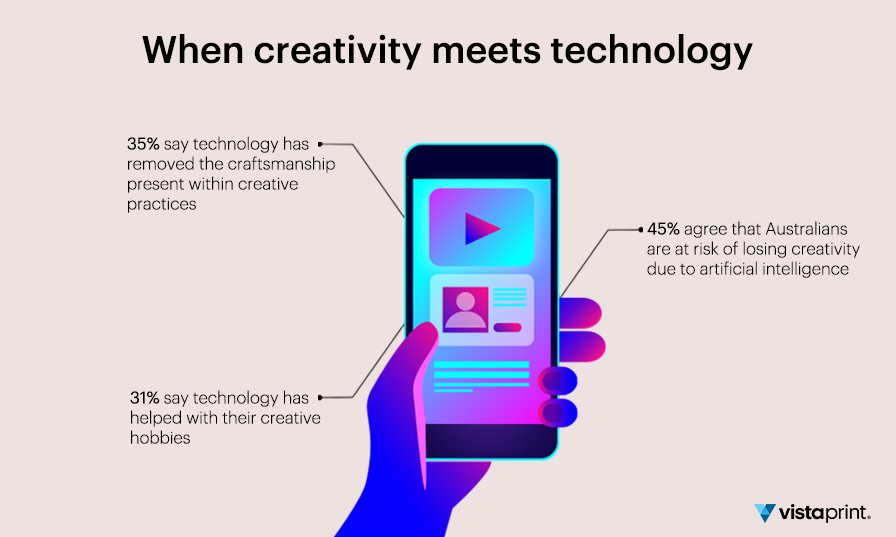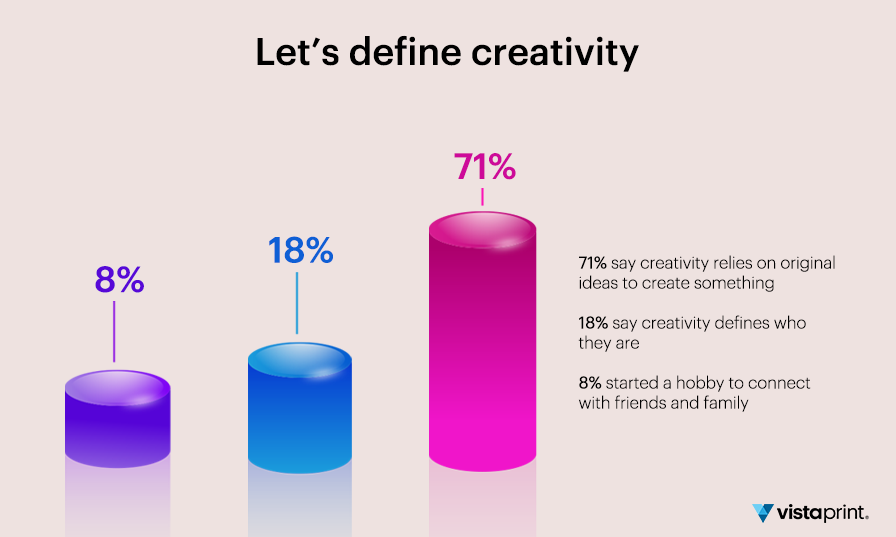Technology Overload: How technology is impacting our creative skills

VistaPrint has recently launched the Creativity Report with results detailing the relationship between creativity and technology and the impact. But how has technology changed the way we think creatively? Although screens have taken time away from doing traditional items such as painting, woodworking, pottery, the introduction of digital artist and digital art pages have created an avenue for consumers to become inspired differently.
Key findings from VistaPrint’s creativity report:
Technology and creativity – helping or hindering?
· More than one in three (35%) of people agree technology has removed the true ‘craft’ present with traditional creative practices.
· Almost half (43%) of people 60+ (Baby boomers) agree that technology has removed the true ‘craft’ present with traditional creative practices.
· Almost one in three (31%) of people believe that technology and the digital age have improved creative hobbies and practices for the better.
· More men than women agree that technology and the digital age have improved creative hobbies and practices for the better (37% of men, 26% of women)
The relationship between creative hobbies and Aussies’ wellbeing
· Over half (51%) of people say their creative hobby has positively helped them in other aspects of their lives i.e., clarity and mental focus
· More than one in three (37%) of people believe creativity is an extension of who they are
· Almost one in four (24%) of people say being creative gives them an escape
While technology has transformed our lives, it can also inadvertently hinder the development of creativity skills. Constant digital distractions can disrupt the flow of creative thinking, making it difficult to dive deep into our imagination and creative thoughts. With that, the convenience of automated tools can discourage individuals from exploring the unpredictable nature of creativity. Balancing technology with mindful, uninterrupted creative time is essential to nurture and expand our imaginative capabilities and give us a chance to work on our creative hobbies and get back to basics.
VistaPrint CEO, Marcus Marchant believes that creativity hobbies should be part of a routine, whether they’re analogue or digital hobbies. He has shared his top tips for Australians searching to infuse creativity into their daily routines:
Start Small and Consistent: Begin by setting aside dedicated time each day, even if it's just 10-15 minutes, for a creative activity that you enjoy. Consistency is key, as even small daily doses of creativity can have a big impact over time.
Embrace Imperfection: Don't be afraid of making mistakes or producing imperfect work. Creativity is about exploration and self-expression, and it's okay not to have everything perfect from the start. Embrace the process and learn from it.
Collaborate and Share: Collaborate with others who share your interests or join creative communities. Sharing ideas and getting feedback can help refine your creative pursuits and provide valuable insights.
Break Routine: Sometimes, breaking out of your daily routine can spark creativity. Change your environment or daily schedule occasionally to disrupt monotony and stimulate fresh ideas.

